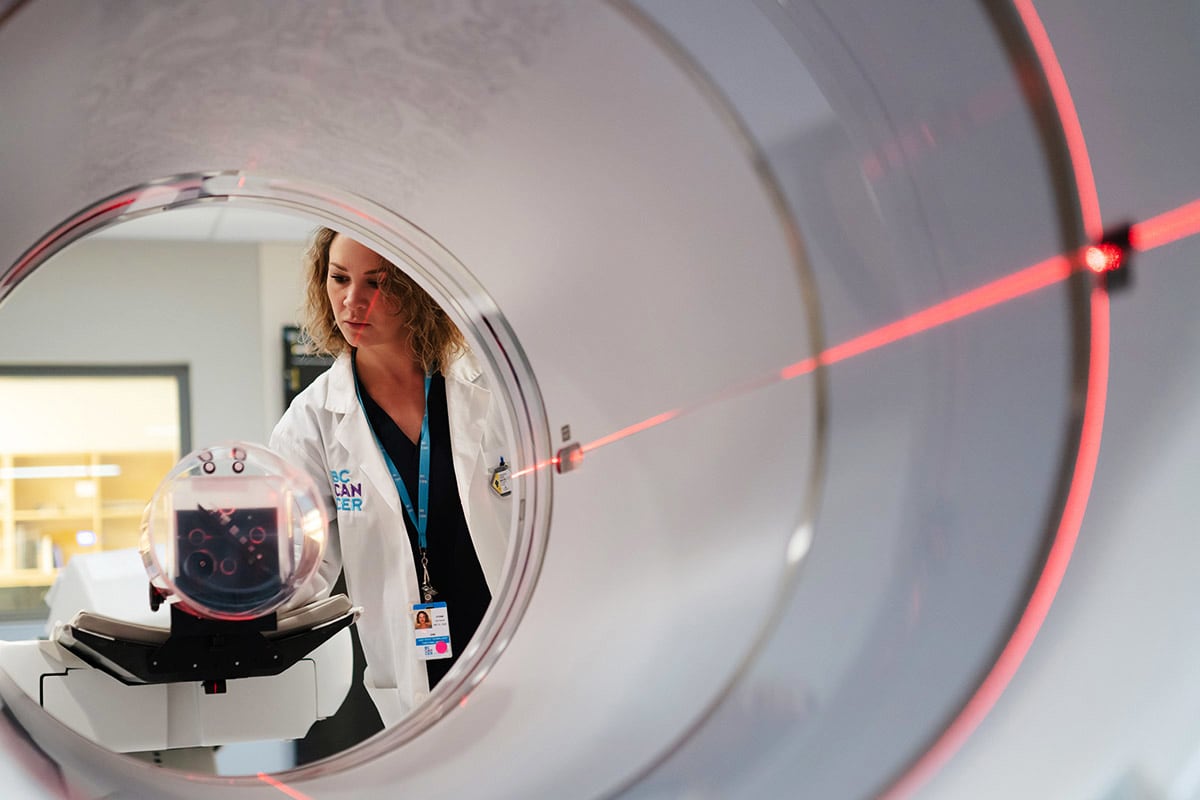Dr. Vanessa Bernstein is a medical oncologist and chair of the skin cancer tumour group at BC Cancer. Based at BC Cancer – Victoria, she’s been treating patients with breast cancer and melanoma since 2000.
Over her 18 year career, Dr. Bernstein has been a champion for clinical research, spearheading trials to help usher innovative new therapies into the clinic. Below, Dr. Bernstein shares her perspective on the state of cancer care today, the advances made over two decades and how we can continue to move the needle.
The advances I’ve seen in cancer care have been phenomenal
We wouldn’t have advancements without clinical research. You have to study new innovations in populations to make sure they work.
For example, I treat patients with breast cancer and have actively run clinical trials here at BC Cancer – Victoria that have helped revolutionize how we treat patients with HER2 breast cancer. Starting with trialing Herceptin back in 2000, and now we’re doing combo hormone therapy. Outcomes are improving for metastatic patients, with new inhibitors, we’re able to double the time is takes for cancer progression.
Another example of a treatment advancement through research resulted from an international trial with oncotype DX testing, that we took part in.
[Editor Note: oncotype DX is a tumour profiling test used to help determine benefit of using chemotherapy in addition to hormone therapy to treat ER-positive breast cancers]
The results of this trial changed our practise. Now, most women have this testing on their tumour, leading to tailored treatments based on their cancer type. The results are better treatments, and in some cases we can spare women unnecessary treatments.
Today, many of our patients with early stage breast cancers have curative results.
I also treat patients with melanoma. When I started, there was little hope. Now, thanks to innovative new therapies such as immunotherapies and targeted therapies that we’ve trialed, patients are being cured. There’s hope.
We won’t move forward if we don’t test new ideas
Importantly, by having access to clinical trials, we have access to new drugs, well in advance of them becoming standard of care and core funded. When we run Phase III b studies, the evidence is already there, we know they are effective, and we can not only give our patients new drugs much sooner, we as physicians gain experience prescribing these drugs sooner in a very safe setting.
Testing new drugs, based on science, that we believe will have benefit, it is the way forward.
How Donor Funds Help
Funds will support our clinical trial infrastructure, with more people we can open more studies, and offer more options for patients.
I love putting people on trials. Being a physician doing clinical trial is exciting, working change the way we treat patients. My goal would be to have options for all patients, multiple studies open, so every patient who comes to our centre has a trial option for them.
Patients don’t like to know they’ve run out of options. That’s the scariest thing; it seeps away at their hope. Having options is helpful for their emotional well-being and being involved in research pays it forward.
Access to new, innovative therapies is hope.
Next week, you’ll hear about Linda West, one of Dr. Bernstein’s patients who has participated in two clinical trials. Her participation with innovative therapies has extended her life and helped change the way others are being treated.
To help bring innovative new therapies to more patients, Peninsula Co-op is generously matching donations up to $75,000 until July 31st. Learn more.


